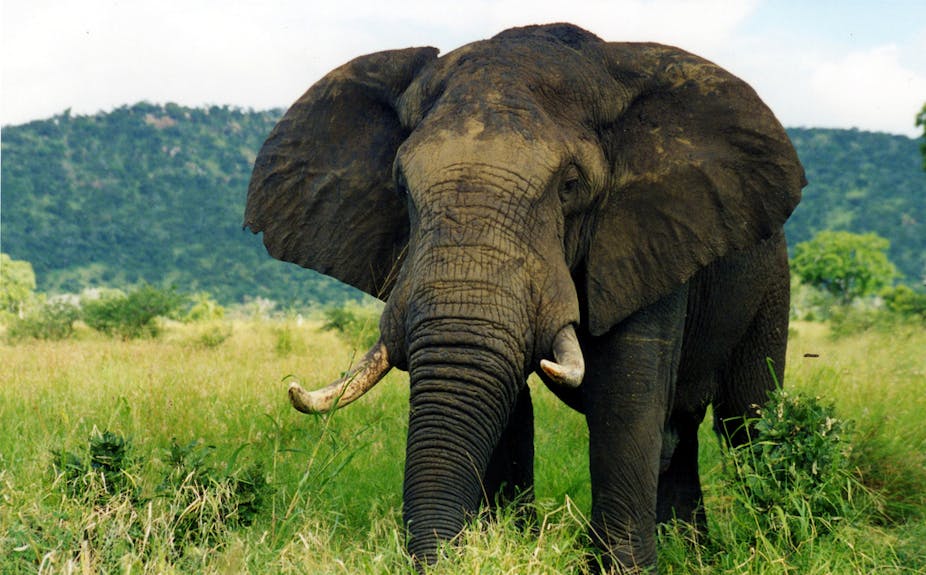Elephants, rhinoceroses, Komodo dragons and other large animals are the unorthodox but most effective solution to the spread of flammable grasses and feral animals in Australia, a scientist has proposed.
David Bowman, a professor of biology at the University of Tasmania, says the world’s largest herbivores should be brought in to eat their way through introduced grasses in the savannas in northern Australia.
Writing in today’s edition of the journal Nature, Professor Bowman says that gamba grass, a giant African grass that is a major source of fuel for wildfires in the monsoon tropics, “is too big for marsupial grazers (kangaroos) and for cattle and buffalo, the largest feral mammals. But gamba grass is a great meal for elephants or rhinoceroses.
"The idea of introducing elephants may seem absurd, but the only other methods likely to control gamba grass involve using chemicals or physically clearing the land, which would destroy the habitat. Using mega-herbivores may ultimately be more practical and cost-effective.”
Professor Bowman also proposes using Aboriginal hunters to curb feral animal numbers.
His provocative suggestions have attracted criticism from some scientists, who say introducing animals could create more problems in the long term.
Dr Ricky Spencer, a senior lecturer with the Native and Pest Animal Unit at the University of Western Sydney, described Professor Bowman’s comments as “careless given recent proposals for the establishment of game reserves in NSW and introduction of new potential feral animals into these reserves”.
“If we did go down the road of introducing elephants to Australia, we had better develop the technology to clone saber-tooth tigers to eventually control the elephants.”
Professor Patricia Werner, from the Australian National University’s Fenner School of Environment and Society, said that elephants and rhinoceroses were browsers, not grazers.
“They eat not only grass but leaves, twigs, fruits, roots they dig up, and even bark … are we in Australia prepared to try yet another landscape-scale ‘experiment’ as we did with foxes, rabbits and so on, and merely hope that the elephants don’t find our native Australian trees tasty?”
Other scientists applauded Professor Bowman for thinking unconventionally, but said the costs and risks involved would render the option of introducing animals such as elephants unattractive.
Professor Bowman acknowledged that his proposal would be seen as radical, but said that three years on from Black Saturday - when a massive firestorm killed almost 200 people in southern Australia - “the usual approaches to managing these issues aren’t working”.


